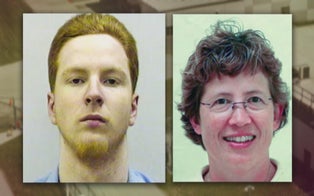Retired Army Captain Gary “Mike” Rose, 71, was granted the military's highest honor for treating more than 60 soldiers despite being injured himself.
A Vietnam War medic was awarded the Medal of Honor for treating at least 60 wounded personnel during four brutal days of combat.
Retired Army Captain Gary “Mike” Rose, 71, was given the military’s highest honor, nearly 50 years after his heroism.
“Mike, your will to endure, your love for your fellow soldiers and your devotion to your country inspires us all,” President Trump said during the ceremony at the White House Monday.
Rose was honored for his bravery during a secret mission, titled “Operation Tailwind,” in Laos, where he was in charge of providing constant treatment for 16 special forces soldiers and 120 other fighters.
On the second day, Rose recalled being badly injured himself.
“I got a hole blown through my foot about the size of my thumb. It took a piece of my hand, peppered with metal and bamboo,” he said. “[The other] guys were carrying a lot more ammo than they normally do. We continued to fight. We weren’t getting much sleep, we weren’t eating, we were constantly getting hit.”
But Rose continued providing constant medical attention to the other troops.
“I was raised in an environment that if you agreed to do something basically on a handshake, you have an obligation to do it,” he said. “Not only an obligation to do it, but to do it the best that you know how.”
Extraction helicopters arrived on the fourth day.
Rose said he watched his fellow troops load into the first two helicopters. By the time he boarded the third helicopter, enemy troops began shooting.
At 4,500 feet in the air, the engine failed.
“One of us said, ‘We're going to crash,’ and the other one said, ‘Yup, we're going down,’” he remembered. “We just sat there, arm-in-arm, looking at the ground coming up. “
But when a Marine tapped him on the shoulder, indicating that he had been hit with a bullet, Rose didn’t hesitate to help him – even though they were sure they would crash and die.
“It looked like someone took a sharp egg beater and chewed up the front of his neck, he was just bleeding like a stock pig,” Rose said, recalling that he used bandanas to stop the Marine’s bleeding since they had run out of medical supplies by then.
While his memory from that point is blurry, Rose was eventually brought to safety. All 16 Special Forces, while injured, were confirmed to have survived that battle and all but four of the other fighters survived.
“It’s a collective medal from my perspective,” Rose said. “All the courage and honor and the dedication those men serve and went for 30 years not even being acknowledged, let alone being recognized. The men and women served in that time frame were honorable and they deserve some type of recognition. This medal somewhat points in the fact that you can say, ‘Faithful servant, well done.”





